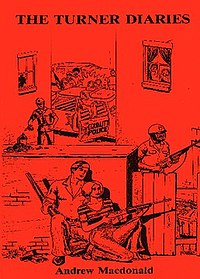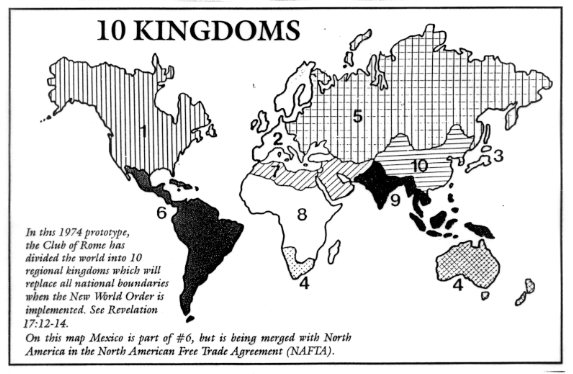This post may be a bit more rambling than usual. I think I tried to put too much in it, so sorry for the length.
I have been always fond of alternative histories. Given the number of novels, books, films and series trying to depict how the world could look like if some things went differently, I am not the only one. From the sci-fi series like Sliders, through Philip K. Dick’s The Man in the High Castle, to academic books based on complex simulation models, many of us seem to take comfort in this act of exerting control over history, which at the same time has this nice, sensationalist tang.
From the perspective of a “non-believer”, conspiracy theories are exactly such a thing; to most o us, they are fiction and we read them as fiction. Some of them, especially those created in the last couple of centuries, are complex enough to create such alternate realities. However, instead of being different due to some important event going another way, they are so because of the existence of a secretive conspiracy guiding world events.
Here lies the crux of the matter – conspiracy theories can very easily become world-building texts. When watch movies or read books by Alex Jones, Peter Joseph or David Icke we invariably hear that what we see and hear on a daily basis is a lie – the true reality, history, even spirituality, is hidden from us, replaced by a lie used to keep us in check. Moreover, the apocalyptic nature of conspiracy theories allows their author’s to create future scenarios – Alex Jones would herald the decimation of humanity, while David Icke a new step in spiritual evolution. For clarity I will refer to them as “Deny Everything” and “The Truth is Out There” strategies.
 |
| Dark City (1997) |
The “Deny Everything” approach supposes that the conspiracy is pivotal to the setting and that the PC know that the everyday life is just a facade. Both the Matrix and Dark City did that, even though none of these movies scream to you “conspiracy theory”. Incidentally, the movie Conspiracy Theory is also an example of this, with the protagonist's tormentors being just a rouge unit of a cancelled government program. The notion here is to go head on and make every conspiracy theory or urban legend true, like The X-Files and the upcoming MMO Secret World did.
What I find most interesting though are not the themes, but what people do with the worlds created by conspiracy theorists. “The Truth is Out There” (TTiOT) strategy relies on those effectively ready-made setting. TTiOT is a strategy of trying to show what would happen if the conspiracy won or progressed their plans. In popular culture, examples could include the first Deus Ex game, with its imagery of a world ravaged by both terrorism and a new plague. We, as the protagonist, soon learn that all of this is a part of a plan to bind all of humanity under one monolithic organization, with references to FEMA easily implying the contemporary conspiracy theories. A foreshadowing of this can be found in the recently released Deus Ex: Human Revolution.
Both the Deus Ex franchise and Eclipse Phase is an ideal example of the clever use of a particular plan becoming reality. Within the latter's setting humanity was essentially decimated during a war with rouge Artificial Intelligences. When I first read it, it just screamed “New World Order” at me. The basic premise is similar as in Deus Ex, but here the contemporary is less pronounced.
So what is the vision of the NWO here? Essentially the one I came across in a number of texts can be summed up thus: The NWO is a globalist conspiracy that plans to control the world through corporations and extranational institutions, downgrading the importance of nation states. They control the development of technology, plan to decimate humanity or make it docile through pharmaceuticals. Environmentalism is also on their agenda, as they want the planet clean, but only for themselves. The end goal of the NWO is to install the selected few as rulers of the Earth, virtually immortal through technological apotheosis.
The ideas in Deus Ex seem to be directly inspired, but some echoes can be found in EP as well, giving rise to interesting (though a bit non-canon) speculation. Was the rise of the T.I.T.A.N.s a fluked attempt of NWO seizing power? Did it succeed, rendered transhumanity divided and helpless with the techno-elite waiting to deal a final blow (the number 95 per cent appears both in EP and in conspiracy documentaries)? Is the Fall really a sham, with large territories of Earth quite intact, though obscured and defended by killsats?
 Curiously enough, conspiracy theorists do that as well. One notorious example are the Turner Diaries, a book published in 1978 by William Luther Pierce under the pen-name of Andrew MacDonald. Full of overtly racist content, the text describes a world in which the white race had most of its civil rights taken by an Afro-American and Jewish ruling class. Those rulers inflict all sorts of injustices on the whites, which leads the protagonist to become a suicidal terrorist fighting for white supremacy. Sounds like racist science-fiction until you realize that the book is effectively a propaganda tool showing what would supposedly happen if the liberal mindset was left unchecked by “heroic” neo-Nazi and post-KKK activists.
Curiously enough, conspiracy theorists do that as well. One notorious example are the Turner Diaries, a book published in 1978 by William Luther Pierce under the pen-name of Andrew MacDonald. Full of overtly racist content, the text describes a world in which the white race had most of its civil rights taken by an Afro-American and Jewish ruling class. Those rulers inflict all sorts of injustices on the whites, which leads the protagonist to become a suicidal terrorist fighting for white supremacy. Sounds like racist science-fiction until you realize that the book is effectively a propaganda tool showing what would supposedly happen if the liberal mindset was left unchecked by “heroic” neo-Nazi and post-KKK activists. Another interesting theme is turning fiction into reality. I was quite surprised when one of the conspiracy documentaries claimed that Aldous Huxley's Brave New World is not a dystopian vision, but an account of what will happen to humanity if the conspiracy, of which Huxley was a rebel member, would not be stopped. In a fascinating reversal, these are claims that the conspiracy theory inspired the fiction that, in truth, inspired the conspiracy in the first place.
And this brings us to a topic I wanted to explore for a long time, namely the dynamic of a conspiracy theory, utopia and dystopia. This one will be more academic and theoretical, but hopefully interesting. After that I hopefully will give you a working example of a campaign based on the principles above.




No comments:
Post a Comment